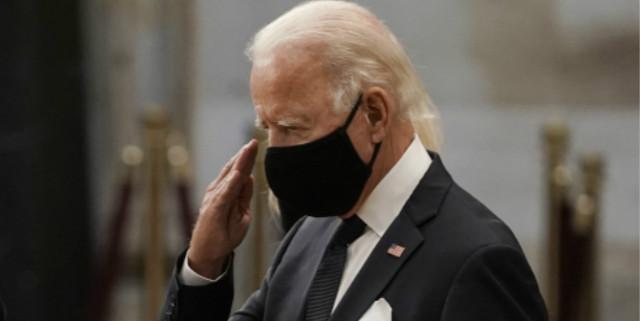"We've spent hours, months negotiating and no one is going to get all the things they want, including me. But this is a compromise, not a principle of my doing things. US President Joe Biden said in a speech at the White House on Thursday (28th).
Biden had planned to leave Washington that morning for Rome for the G20 summit, after which he would attend the 26th United Nations Climate Change Conference in Glasgow, England. But the White House postponed Biden's travels late the night before so he could attend Thursday morning's Democratic caucus meeting.
However, Biden's personal lobbying to Congress did not save the situation: because there was no specific agreement on the large-scale spending bill, the House Democrats in Congress once again gave up voting on the infrastructure bill on the same day.
Voting on the infrastructure bill was seen by House Speaker Pelosi and Democrats as Biden's "confidence and strength" in attending the G20, and as an important political factor that could help the Democratic Governors of Virginia and New Jersey.

What happened before Biden went to Europe
While both Biden and Pelosi remain hopeful until the last minute, for Biden, the Social Security reform bill he has been promoting has yet to be finalized, so members of the Democratic Party, including progressives, believe they won't rush to make a decision unless they see the final concrete.
The White House on Thursday (28th) unveiled the framework of the "Rebuild Better" program, which plans to expand early childhood education within 6 years, significantly reduce usurp usurpation of U.S. greenhouse gas emissions within 9 years, encourage the widespread use of electric vehicles, expand government-supported health care coverage for at least 4 years, and plan to pay for the program through new taxes on the wealthy.
Sources revealed that on the same day, before Biden boarded the plane to Europe, all cabinet members were sent to hold talks with members of Congress. Not only that, but progressive groups have also released the latest propaganda ads, and Biden and Democratic Party representatives have circulated "answer points" to give answers in support of the "Rebuild Better" plan when interviewed by the media.
According to sources, Biden's pre-departure wish was to pass one of the Social Security Bills and Spending Bills before he left for Europe.
"The whole world is watching to see if we can function." Biden said in Congress on the same day.
By noon, however, after learning that apparently not all Democrats agreed with the framework of the Social Security program, Biden left Congress and returned to the White House, where he boarded a plane to Europe.
Conundrum: Lack of ambassadors
In addition to the congressional legislative crisis in the US internal affairs, Biden's participation in this year's G20 summit has a clear conundrum: On this important international occasion, only one "legitimate ambassador" in the Biden administration, the nomination of the US ambassador to Mexico, Ken Salazar, has been confirmed, and the nominations of other ambassadors have been shelved in the Senate for approval.
There are currently 60 nominees awaiting approval, but Senator Cruz of Texas and Republican Senator Holly of Missouri decided to "shelve" approval of Biden's ambassadorial nomination for administrative reasons.
In addition to the large number of ambassadorial nominations that have been shelved, biden has not yet nominated ambassadors from many countries, although he has been in office for 9 months.
Some members of the U.S. Congress and diplomats believe that the lack of an approved ambassador will prevent Biden from performing diplomacy on the G20's international stage, and will make him "ill-prepared and unable to start" when he engages with these countries alone.
"The most important job of the ambassador is to help build diplomatic strategies (before the G20) and influence foreign governments." Ronald Neumann, a former U.S. ambassador to Afghanistan, said, "It's an important function to have ambassadors interact there and have them there to help plan our strategy." ”
Some experts believe that the lack of ambassadors has damaged the reputation of the United States in international forums.
"Ultimately, the international community may understand and forgive us for the rudeness and lack of commitment we have shown." Eric Rubin, president of the American Diplomatic Service, said, but "the Senate should consider immediately passing all ambassadorial nominations and nominations for other government positions that have been put on hold." ”